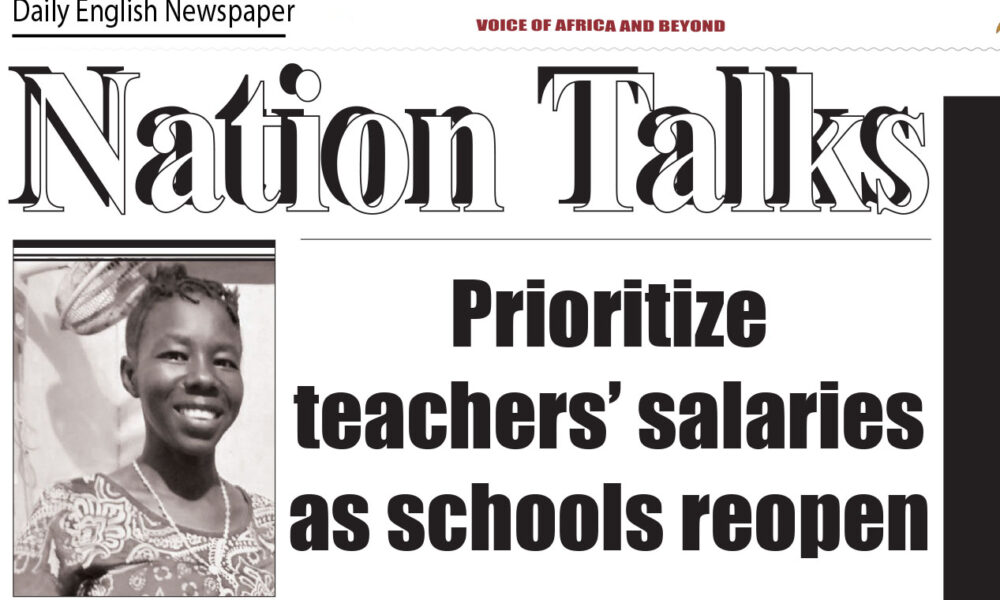As schools prepare to reopen, the government must address the longstanding issue of delayed and inadequate payment of teachers’ salaries. The current situation has created a damaging reputation for the country, with teachers being the most affected group.
If South Sudan is committed to securing a promising future for its education system, timely payment of teachers’ salaries should be a central requirement. Teachers deserve to be compensated regularly, at least monthly, along with fair incentives, enabling them to provide quality education and deliver their services effectively. Access to essential teaching materials, such as textbooks, charts, and other resources, is also crucial for ensuring a conducive learning environment.
It is essential to recognize the significance of teachers in any country’s development. Without teachers, a nation’s progress is hindered. Political leaders, doctors, presidents, and ambassadors owe their success to the teachers who imparted knowledge and shaped their lives. South Sudan must acknowledge the importance of teachers and rectify the current neglect they face. In contrast, other East African nations prioritize timely payment of teachers’ salaries over other sectors.
In South Sudan, teachers often face delays of four to six months in receiving their salaries, sometimes resorting to protests and abandoning their teaching duties before the government takes notice. The Ministry of Education should prioritize understanding the needs and challenges faced by teachers across the country, rather than solely focusing on their interests. Failure to address these issues has resulted in poor performance in government schools compared to private institutions.
While the Ministry of Higher Education and Instructions’ decision to reopen schools on April 2, 2024, is commendable to prevent early marriages and keep students engaged, the persisting issue of unpaid teachers’ salaries casts a shadow over this positive step. The government must establish a robust education system that prioritizes the welfare and professional growth of teachers. Neglecting this crucial aspect will undermine the credibility of the education sector.
I appeal to the government to increase teachers’ salaries and ensure regular monthly payments. By doing so, South Sudan can become a beacon of quality education, attracting students not just from within the country but also from foreign nations where ministers trust the educational standards of South Sudan. The government must prioritize the well-being of its teachers and eliminate corruption, understanding that the quality of teachers directly impacts the progress of the nation.
I hope that South Sudan will take the necessary steps to rectify this situation and pave the way for a brighter and more prosperous future in education.
God bless South Sudan.
Be right there!




